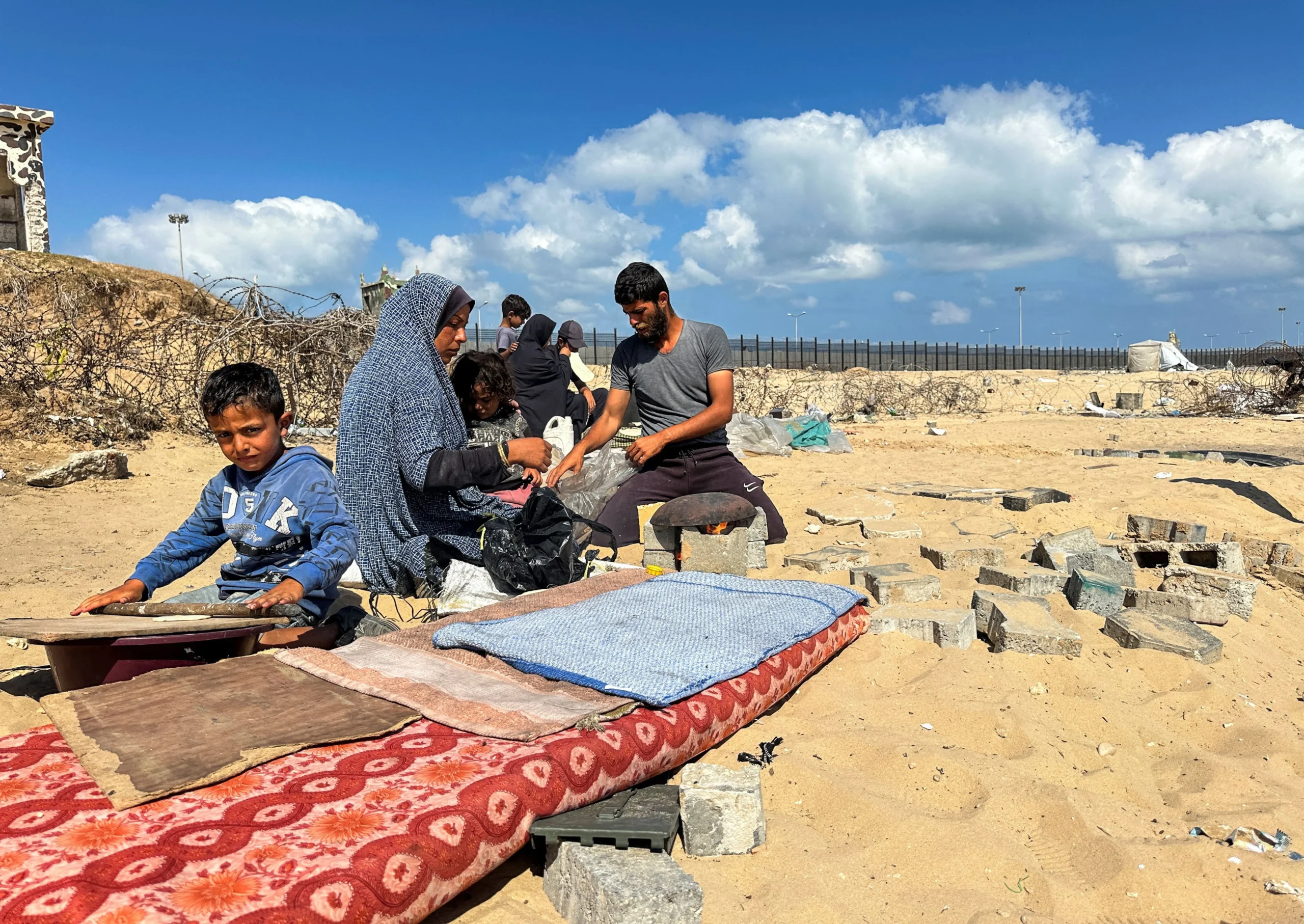The Israeli-Palestinian conflict reignited has rekindled long-standing tensions in the region, with ramifications extending well beyond the borders of Gaza. In recent comments from a former ambassador to Egypt, it has been revealed that Cairo will not appoint a new ambassador to Tel Aviv until the hostilities cease. This statement underscores the fragility of the Egypt-Israel relationship, exacerbated by the current crisis.
Since its inception in 1979, the Egypt-Israel peace treaty has survived numerous crises, but recent developments suggest that what was once termed a ‘Cold Peace’ may now be teetering on the brink of a deeper rift. This article will delve into the prevailing circumstances, the reasons behind Egypt’s cautious diplomacy, and the potential pathways towards mending the frayed ties between these two nations plagued by rising tensions.
The Gaza Conflict and Its Aftermath
The latest flare-up of violence in Gaza has highlighted the complex dynamics of regional politics. Egypt has long acted as a mediator in the Israeli-Palestinian conflict, often seeking to balance its own national interests with those of the Palestinian people. Following the latest escalation, which has claimed countless lives and displaced thousands, Egypt finds itself in a precarious position.
Former Ambassador to Egypt, coupling his insights with direct knowledge of the evolving situation, emphasized that the delay in appointing a new ambassador signifies a broader dissension regarding Israel’s military actions and policies. The Gaza war has not only led to intensified clashes but has also significantly tarnished Egypt’s perception of Israel in the eyes of its citizens.
A Strained Relationship
Historically, Egypt has played a vital role in mediating peace in the region, fostering stability while maintaining control over its borders and citizen sentiments. However, the recent extension of the Gaza war and the heavy civilian casualties associated with it have amplified public dissent within Egypt against Israel.
Moreover, the past few years have seen a marked decline in the optimism that characterized earlier interactions. Various factors contribute to this decline, including economic challenges within Egypt, growing public unrest, and a general sentiment of betrayal felt by many Egyptians towards their government for its perceived complicity in Israel’s policies.
The Domestic Factor: Public Sentiment
The Egyptian populace has historically harbored strong sentiments toward Palestine. The graphic images emerging from Gaza have reignited emotions and exacerbated frustrations with the current Egyptian government, which is seen as leaning too favorably towards Israeli interests at the expense of Palestinian rights.
Protests and unrest have grown in frequency as Egyptians demand more vocal government support for Palestinians. As the government seeks to maintain order, it faces a delicate balancing act. If Cairo were to send a new ambassador to Israel during this tense period, it could lead to backlash domestically, further straining the regime’s credibility.
Egypt’s Geopolitical Position
Despite the various issues plaguing diplomatic relations, it is crucial to note that Egypt and Israel share overlapping national interests, primarily in terms of security, counterterrorism, and economic stability. The Sinai Peninsula, for instance, continues to witness militant activities threatening Egyptian security. Hence, relations, though strained, remain essential for both parties.
Furthermore, Egypt relies on foreign assistance, particularly from the United States, which views Egypt’s partnership with Israel as a cornerstone of its broader Middle East policy. Diplomatic ties have thus been reliant not only on bilateral relations but also on international dynamics that incentivize maintaining a semblance of cooperation.
How to Warm the Cold Peace
To restore meaningful dialogue and improve relations, both Egypt and Israel must navigate difficult waters. Consideration for a few pathways may provide hope for rekindling their fragile partnership:
1. Diplomatic Engagements
Resuming high-level talks between the two countries could help rebuild trust and open lines of communication. It is vital that Egyptian leadership feels empowered to confront Israeli policies regarding Palestine, especially in light of public opinion. Solutions should include strategic discussions on security, economic cooperation, and mutual benefits.
2. Humanitarian Efforts
As the humanitarian crisis in Gaza deepens, Egypt can utilize its position to facilitate aid efforts while urging Israel to ensure the protection of civilians. By taking an active role in humanitarian initiatives, Egypt can demonstrate goodwill and garner support from its populace, thereby reinforcing its leadership role in the Arab world.
3. Pressures for Policy Change
Egypt may further benefit from leveraging international friendships and partnerships to advocate for changes in Israeli policy. By forging stronger ties with other Arab states, Egypt could present a united front to encourage Israel to reconsider its approach towards Gaza and the Palestinian territories.
4. Cultural Exchanges and People-to-People Diplomacy
Cultural diplomacy plays a significant role in mitigating distrust between communities. Initiatives focused on exchanges between Egyptian and Israeli civilians—students, artists, and professionals—may foster understanding and promote dialogue on both sides.
5. Economic Collaboration
Laying the framework for economic collaboration may soften hostilities. Joint projects focused on trade could yield mutual benefits while intertwining interests, creating incentives for both governments to sustain peace.
Conclusion
The road to rapprochement between Egypt and Israel remains fraught with challenges, particularly as long as the Gaza conflict remains unresolved. However, recognizing shared interests is critical. If leaders in both nations can embrace an atmosphere of dialogue, activism, and transparent communication, they may not only withstand the current storm but also cultivate a relationship that thrives beyond a chilled state.
The cold peace established decades ago is undoubtedly tested during moments like these, but as history shows, even the frostiest agreements can thaw when diplomacy is prioritized. For now, Egypt’s hesitation in appointing a new ambassador serves as a signal of the ongoing struggles within the region and the complex nature of its diplomatic relationships.







